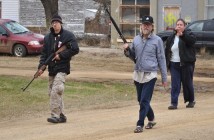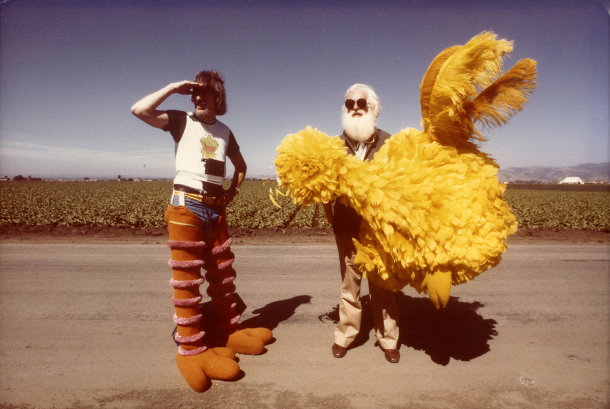Dir. Cristi Puiu
2011
Aurora is not so much slow as it is alert to details that lie outside plot and context. There is a passage in Argentinean critic David Oubiña’s wonderful book A Philosophical Toystore in which he describes how, while watching Douglas Gordon’s 24-hour Psycho – which unsurprisingly lasts a whole day and consists of Psycho slowed down to cover such a time-span – the plot becomes incomprehensible, since each movement takes so long to complete that our attention is captured by tangential details and the millimetric texture of every mannerism. Thus, our grasp over the sequential order of events loosens to the point that we forget all about it.
The same happens in Aurora: characters and events are partly clarified at the end, but these are not the missing pieces of a puzzle, they are simply the kind of information somebody would divulge during a police confession. Because of the mystery surrounding the story, and because we barely know what is going on for much of the running time, we are inclined to fill in the blanks and play detective. Which is one way of enjoying the film. But, although it adds color and flavor to the proceedings, whatever happened in the life of our protagonist before the start of the film does not seem to matter in any essential way. It is a mystery to enjoy during a first-time viewing, and there is pleasure to derive from its partial solving, yet once solved or understood, we find that what was important all along was not the concealed information, but the simple moment-to-moment experience of the world, the living and breathing, the auditory and tactile qualities, the visual labyrinths.
Aurora teases us with a missing back-story and withholds the answers to our questions in order to fix our gaze beyond the plot, so that we can marvel at other things, at the miniature portrait of the upstairs neighbors, for instance: notice the chauvinism that holds the marriage ransom, notice the violence inherent within the marriage and how it metamorphs into the violent parenting suffered by the child, notice the man’s incessant need to demonstrate his worth as both a male and a neighbor. There are also other kinds of portraits, gestures that suggest beautiful depths in mere seconds. Look at the lady at the gun shop, with her predatory face, salivating the possibility of a sale, or maybe just enjoying her own talk of rifles and bullets, how the model names and numbers fall from her mouth, and how her gun jargon suggests a select group or clique: the underworld of people who understand each other through coded language. Or look at the father-in-law, a gorgeous creation: his slump, his hunched posture of defeat as his son-in-law informs him, in explicit and unbuffered terms, that he is not and will never be welcomed. In the next shot, he cries off-screen. And that is his last appearance. There are other delights to see: environments, rooms. As the protagonist prepares his murderous spree, he inhabits his emptied home as it is being remodeled; how the bared walls and persistent books and scattered paraphernalia compose a mindscape. This is the stage where nothing happens, the space where the vacancy of the protagonist’s inner world finds its double, the naked walls and spattered ground where he acts out his detachment from the secret rage that consumes him, a madness that he shapes into a coherent plan for punishment.
[notification type=”star”]85/100 - It is a mystery to enjoy during a first-time viewing, and there is pleasure to derive from its partial solving, yet once solved or understood, we find that what was important all along was not the concealed information, but the simple moment-to-moment experience of the world, the living and breathing, the auditory and tactile qualities, the visual labyrinths.[/notification]




